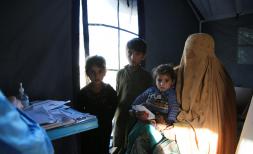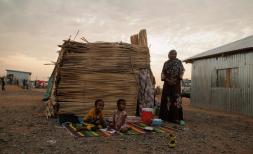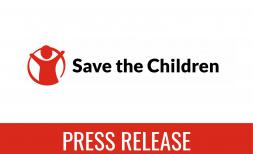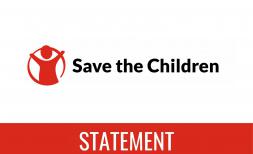The Malawi Chief fighting vaccine myths as new variant spreads
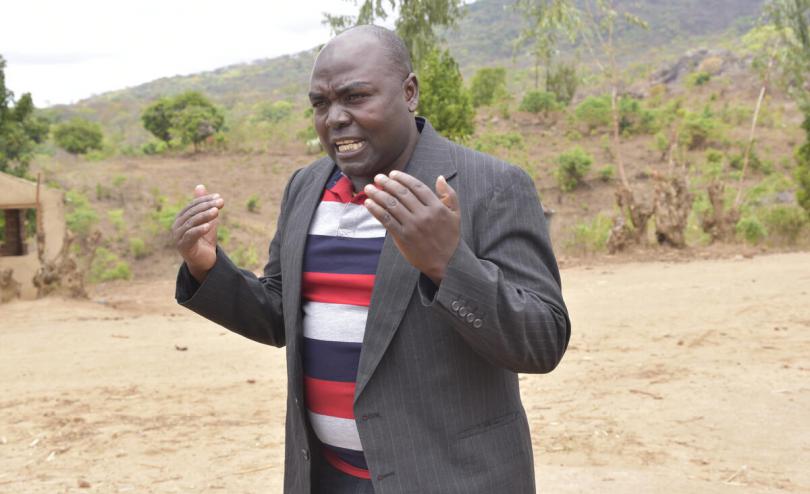
The Malawi Chief fighting vaccine myths as new variant spreads
- As the world scrambles to contain the spread of the new Omicron coronavirus variant, countries like Malawi are continuing their efforts to increase vaccine uptake.
- Chief Chimlango, who oversees 17 villages in western Malawi, is at the forefront of these efforts. While national COVID-19 vaccine uptake across Malawi is only 7%, in Chief Chimlango’s area it is 57%.
On any given day in Mwanza in western Malawi, local traditional leader Chief Chimlango can be seen on the back of an open car, megaphone in hand, rallying his community - and young people in particular - to get the COVID-19 vaccine.
When Chief Chimlango is not shouting from the back of his car, he is running door-to-door campaigns, preaching the gospel of the vaccine and even joining health teams at hospitals to administer the vaccine himself.
For one of the most pervasive myths about the vaccine has been that it causes reproductive problems, which has led to many young women and men in the southern African nation avoiding vaccinations due to fertility concerns and Chief Chimlango is on a mission to change this.
Campaigns to increase the uptake of COVID vaccinations in Africa have been given a new impetus in the past week with the spread of the new Omicron variant prompting some countries to close their borders to flights from several southern African countries.
Chief Chimlango is one of a small but growing group of passionate COVID-19 vaccine advocates in Malawi committed to changing community approaches to the life-saving vaccine, in a country with a perilously low uptake rate of 7.3% nationally.
For although vaccines are slowly becoming more available, many Malawian people are fearful of the vaccine and concerns about rumoured links to infertility has disproportionally stopped fertile men and women from getting jabbed.
Vene, a leader of Chiyambi, a Community-Based, was an early sceptic of the COVID-19 vaccination, and particularly worried about how it might impact her ability to have children.
“When the chief approached me, I told him I would not get vaccinated because there were rumours that if you got vaccinated, you would not conceive again. I am young and I am not done giving birth so I was really worried. But the chief explained to me and cleared all misconceptions for me and gave me confidence to get vaccinated,” she said.
To combat the hesitancy, in July this year Save the Children started supporting local champions who were fighting skepticism and misinformation to get larger numbers of people to accept vaccinations.
Chief Chimlango is one such champion, whose ‘catchment area’ of 17 villages around Mwanza on the western border of Malawi has seen a dramatic rise in vaccine rates since he hit the road, up to 57% of his community is now vaccinated.
In Malawi’s population of nearly 20 million, only 800,000 people have received at least one dose of the vaccine[1] but in Chief Chimlango’s catchment area, which incorporates 17 villages, 1,240 of the 2,160 eligible adults have now been fully vaccinated
To achieve this result, Chief Chimlango rallied and summoned committees from each village – including church groups, mother groups, youth groups, traditional leaders, community-based organisations and disaster management committees— to sit down talk about the pandemic.
“First, I went round the villages and explained to the people what COVID-19 was and told them that although we have had no confirmed cases of COVID in the area, all of us were vulnerable if we did not get vaccinated,” the Chief said.
“I explained to them that although we had not been affected, everyone was vulnerable and we needed to take preventive measures to protect ourselves and the best preventive measure is to be vaccinated. There was a lot of resistance in the area due to certain engrained beliefs. This is why it was important for me and the other leaders to step up.
“Our strategy as chiefs is that we have been using all available platforms to preach the message about COVID-19. Even at weddings and funerals, wherever we are given the platform, we make sure to educate our people about this vaccine and we will not stop until government tells us to.”
The traditional leader even ventures into “initiation camps” to educate community members. It is at these camps, which are traditional, cultural practices that mark a youth’s entry into adulthood, where many of Malawi’s most influential cultural gatekeepers congregate. Health workers cannot just walk into these camps and deliver messaging, as is not culturally acceptable to welcome anyone who has never graduated from such camps into the group.
“I am not shy or ashamed. I have a job to do,” he said.
The 12-month program, funded by the European Civil Protection and Humanitarian Aid Operations (ECHO), is set to run until July 2022.
Save the Children is leading the implementation of the program in southern Malawi, along with a consortia of NGO partners. The program is being implemented across eight districts of Mzimba North, Lilongwe Urban and Rural, Dowa, including Dzaleka refugee camp, Dedza, Mangochi, Blantyre, Mwanza and Mangochi.
Partners in the project are Care, Oxfam, Catholic Relief Services, TroCaire, GOAL, Concern Worldwide, United Purpose, Centre for Human Rights and Rehabilitation (CHRR), CADECOM and the Catholic Health Commission. Digital development partners include Cooper/Smith and Viamo.
For further enquiries please contact:
- Daphnee.Cook@savethechildren.org
- We have spokespeople available.
- Our media out of hours (BST) contact is media@savethechildren.org.uk / +44(0)7831 650409
[1] By the end October 2021
